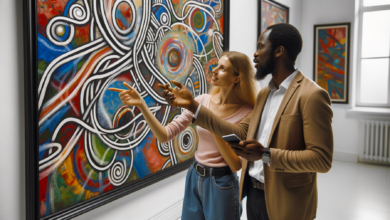Psychological Factors Influencing Attraction

What Draws Us to Others?
Have you ever wondered what makes certain people more attractive than others? Or why you might feel an instant connection with some people but not with others? Attraction isn’t just about looks or the cliched “chemistry”; it’s a complex interaction of psychological factors. Understanding what influences attraction can not only help you become more appealing to others but can also help you understand your own feelings and establish healthier relationships.
Proximity: Being Close Can Spark Attraction
One of the most basic factors influencing attraction is proximity. The more we see and interact with someone, the more likely it is that we will become attracted to them. It’s all about familiarity. The Mere Exposure Effect, a psychological phenomenon, explains that repeated exposure to a person increases our liking for them. It suggests that seeing someone often can create comfort and a sense of shared experience, which can be a strong starting point for attraction.
Similarity: Like Attracts Like
It’s not just about being physically close to someone. We are often attracted to people who are similar to us, whether it’s sharing common interests, values, beliefs, or backgrounds. Similarity creates a sense of connection and understanding – you feel ‘in tune’ with the person. When you share similarities with someone, communication often feels easier, as you start from a foundation of agreement and shared experiences. This common ground can foster deeper bonds and make the relationship more likely to last.
Physical Attractiveness: The Role of Aesthetics
Yes, physical appeal does play a role in attraction, but it’s not all about societal standards of beauty. Sometimes, what makes a person attractive to us is not their adherence to a beauty norm but how their features fit with our personal preferences, which can be shaped by biological, cultural, and individual factors. Moreover, people often look for traits that indicate good health and the ability to reproduce, even if that’s not the conscious end goal of the relationship.
The Halo Effect: The Impact of First Impressions
The Halo Effect is a type of cognitive bias where our overall impression of a person influences how we feel and think about their character. Essentially, if we find someone attractive, we are more likely to assume that they have other positive traits, such as intelligence and kindness. This can make the attraction even stronger because we’re not just attracted to how someone looks but also to the positive qualities we believe they possess.
Reciprocal Liking: When Attraction is Mutual
Knowing that someone is attracted to you can influence your feelings towards them. This phenomenon is known as reciprocal liking. When someone likes us, it can raise our self-esteem, and we often start to view them more positively as well. Being liked by someone can lead us to give that person more attention and value their opinion more highly, which can strengthen the initial spark of attraction.
Playing Hard to Get: Does It Really Work?
The concept of playing hard to get suggests that seeming less available can make you more desirable. The theory behind this tactic is scarcity—when something is scarce, it is seen as more valuable. In some instances, not being readily available can indeed increase someone’s interest because they see it as a challenge. However, this can backfire if it’s taken to an extreme, as it may signal disinterest rather than provoke pursuit.
Personality and Sense of Humor: More Than Meets the Eye
It’s often said that it’s what’s on the inside that counts. Personality traits such as kindness, intelligence, and a good sense of humor can be very attractive to many people. A person’s ability to make us laugh and feel good can be incredibly appealing and can sometimes override other, less favorable traits. Humor can often be a gateway to deeper emotional connections and a pivotal factor in the building of attraction.
Social Status and Resources
Despite romantic notions of love that transcends material needs, social status and resources do play a role in attraction. This does not mean that materialism dictates who we find appealing, but rather that feeling secure and having access to resources can be appealing traits in a partner. Someone who is seen as capable of providing support can be desirable, especially when considering long-term relationships.
The Power of Vulnerability
Let’s not underestimate the power of vulnerability in creating an emotional bond. Being open about our thoughts, feelings, and experiences can make us more relatable and endearing to others. Vulnerability can show trust and authenticity, which are highly attractive qualities. It can create a sense of closeness and intimacy that can be hard to replicate with just surface-level interactions.
The Role of Mystery and Novelty
While familiarity and similarity are important, there is also something incredibly appealing about mystery and novelty. Meeting someone new or experiencing changes in a long-term partner can reignite feelings of excitement and intrigue. The psychological concept of novelty seeking suggests that humans enjoy and are attracted to new experiences, which can translate into attraction to those who bring something different into our lives.
Attachment Styles and Relationship Histories
Our past experiences and attachment styles, often developed in childhood, significantly impact whom we find attractive. Those with secure attachment styles may find themselves attracted to others who are capable of healthy, independent relationships. Conversely, those with anxious or avoidant attachment styles might find themselves drawn to patterns of relationships that confirm their worldviews on trust and intimacy.
The Influence of Culture and Society
The society and culture we grow up in also shape our ideas of attractiveness. Cultural norms dictate much of what we find appealing in a partner, from physical attributes to behaviors and roles within a relationship. Our social circles, media consumption, and norms can influence our personal preferences in ways we may not even be aware of.
Finishing Thoughts
Attraction is a multifaceted phenomenon influenced by an array of psychological factors. From proximity and similarities to physical appeal and personal history, there are countless elements at play. Understanding these factors can help us in forming stronger connections and choosing partners who are truly compatible with us. It’s not about calculating every step or trying to appeal to everyone; it’s about recognizing the complex web of factors that draw us to certain individuals and acknowledging the unique blend of elements that spark connection and desire.
Remember, every relationship is as unique as the individuals in it, and the journey to finding and maintaining attraction is personal and ever-evolving. Keep these psychological factors in mind as you navigate the world of relationships, and be open to the complexity and beauty in the way we connect with others.




